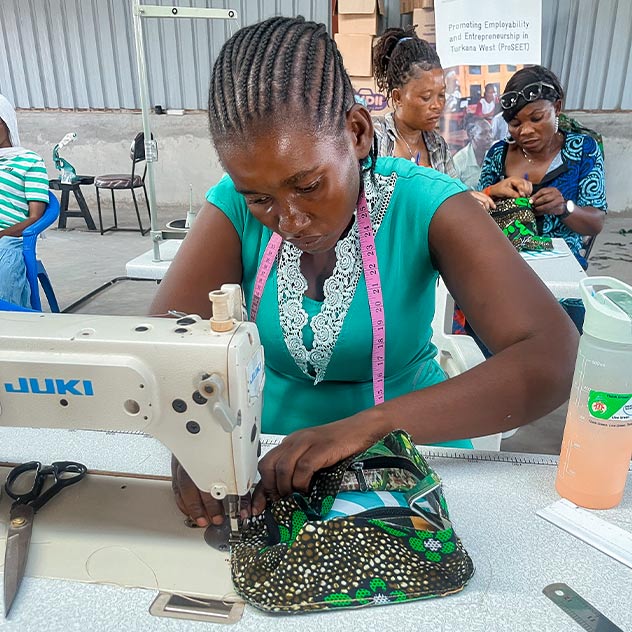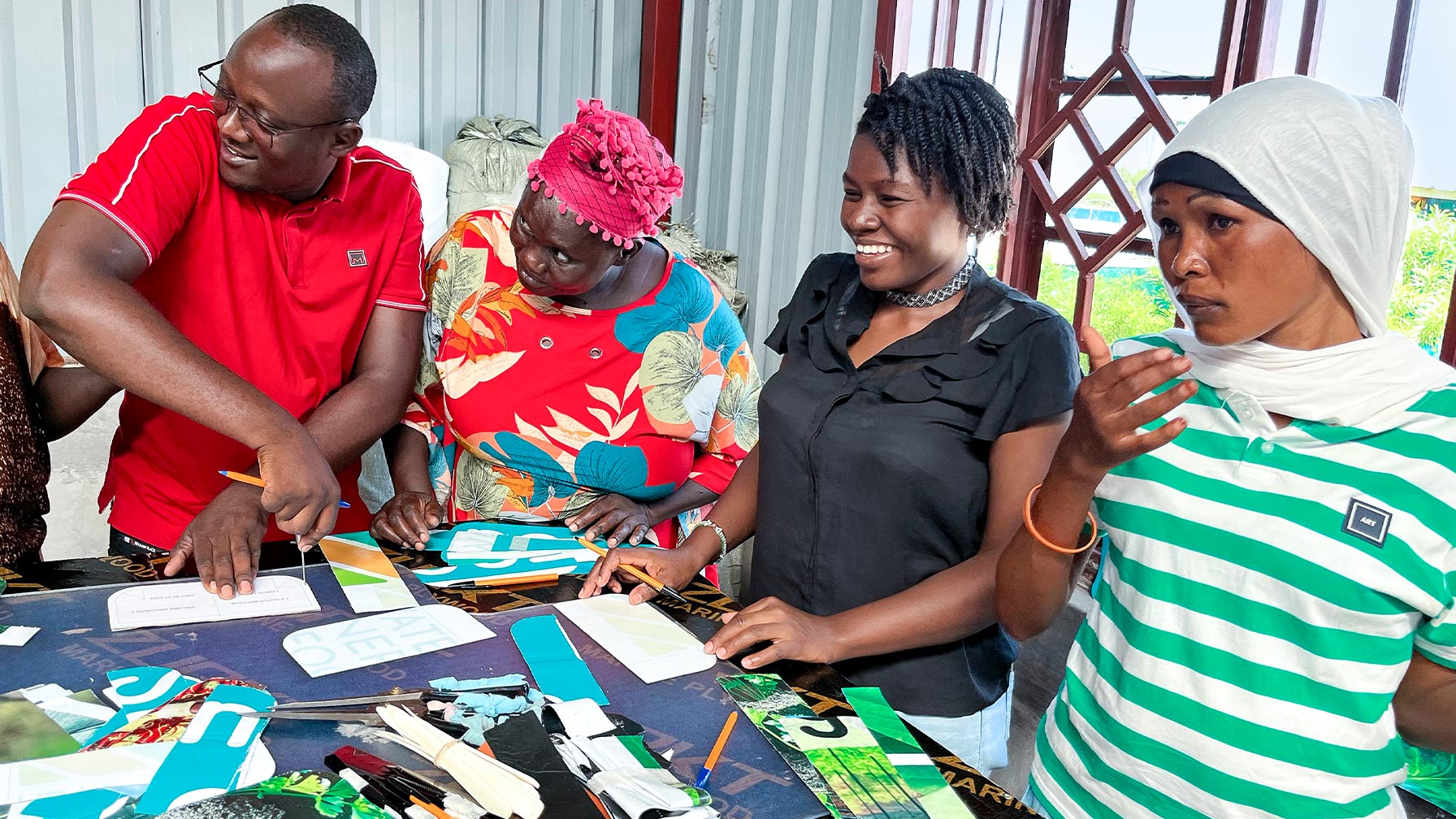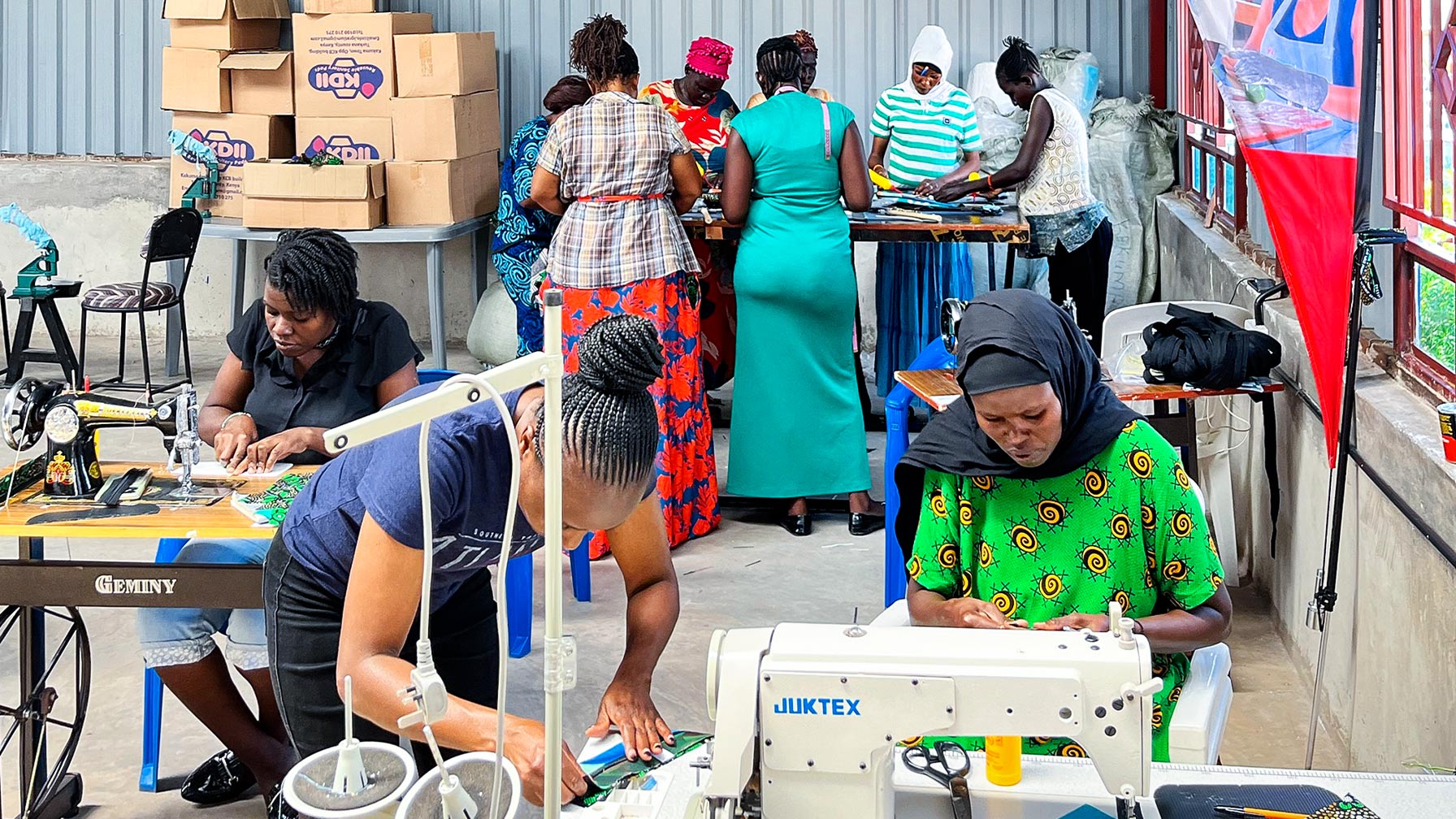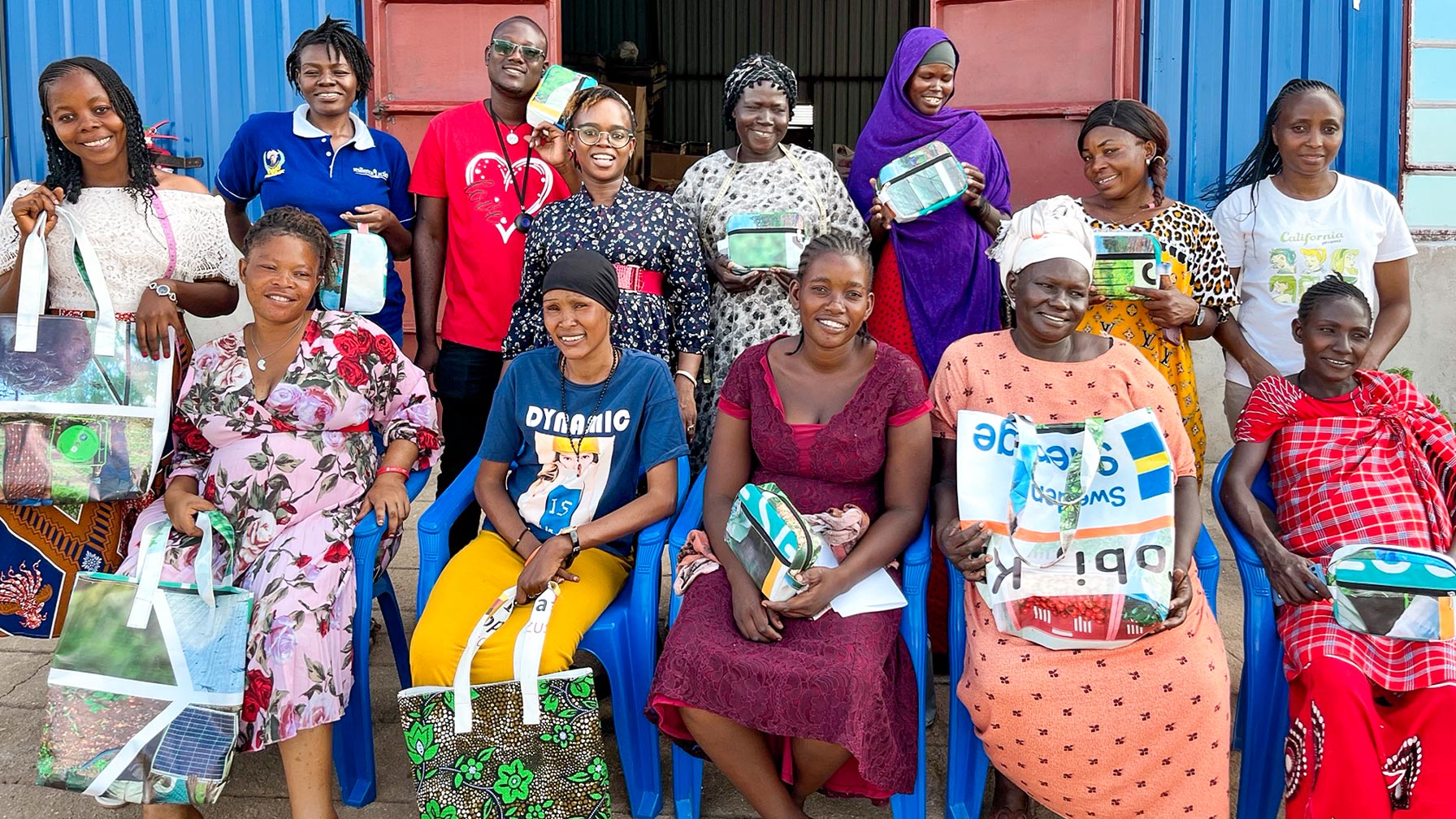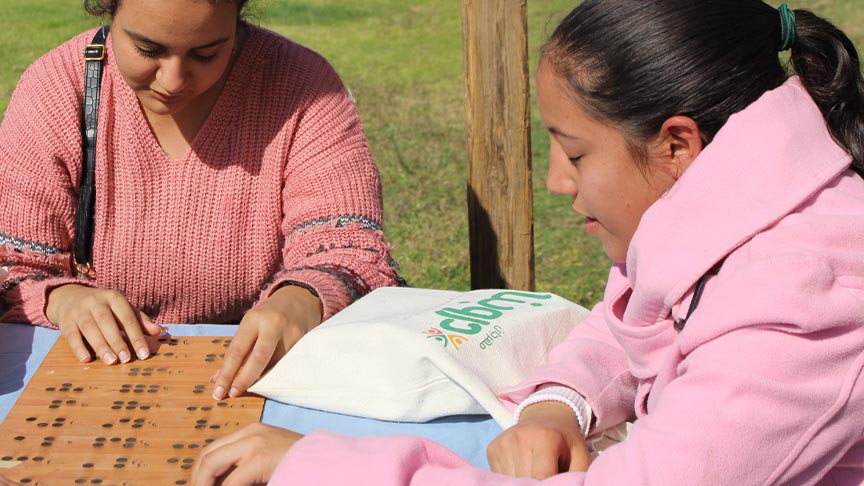Sustainability is a key concern of GIZ staff. In 2024, we established the company-wide Sustainability Challenge as a suitable way of honouring and celebrating their commitment. Staff on all continents were able to submit their projects, which were judged in four categories: fragility, the workplace, diversity/inclusion and cost-effectiveness. A total of 37 projects, nominated by 23 countries, participated in the challenge in 2024. Over 5,000 colleagues got involved in the vote to choose the winners.
The joy and jubilation knew no bounds when the Banner to Bags Project from Kenya was crowned the winner of the workplace category. The idea was for seamstresses in a Kenyan district that is home to a large number of refugees to make bright and colourful bags out of old GIZ banners and roll-ups, thereby allowing them to generate additional income. The concept was lauded not only by GIZ staff who voted but also by the jury, who chose the winners from the ranks of the finalists with the most votes.
"It was simply incredible to get such a positive response," says Jennifer Okumu, who is responsible for communication at GIZ’s Kenya Office. She and her colleagues Lorraine Nguku and Esther Muthee were behind Kenya’s entry. "In our country office and the project offices in Kenya and Somalia, a large number of banners are produced that can only be used once or at some point no longer look so good. In GIZ’s Kenya Office alone, almost 300 old banners had gathered over the years."
Jennifer Okumu and her colleagues had the idea of using the banners to produce bags and give refugees a new source of income. Okumu shouldered responsibility for the overall coordination and communication regarding the entry to the Sustainability Challenge. Lorraine Nguku, whose duties include communication for projects in the field of (forced) displacement, established contact with a refugee project. Esther Muthee, gender advisor in GIZ’s Kenya Office, took on responsibility for logistics and budget monitoring. The EUR 3,500 prize money for the Sustainability Challenge has been invested by the winners to support the project.
The main actors in the sustainability project are women from Kakuma, a small town in Kenya, which is home to one of the world’s largest refugee camps. Women from the camp and the surrounding district are given dressmaking and business training as part of the project that GIZ is implementing there. Most women are already working as self-employed seamstresses, creating ideal preconditions for upcycling used banners.
Okumu and her two colleagues managed to recruit someone from a leather processing company to support their project. He showed the women how to process the firm materials that banners are made of. That was hugely beneficial. "I’m delighted that I’ve learned so much. I look forward to using the new techniques and developing my business," says seamstress Gloria Echoto Iopurui.


